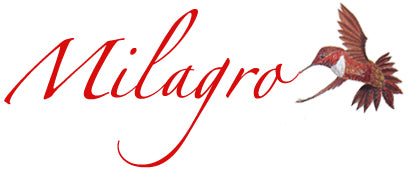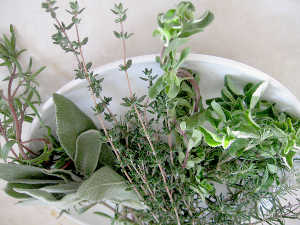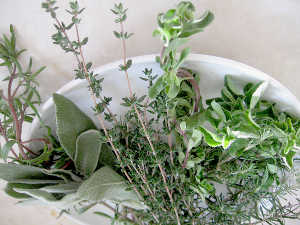1
/
of
1
My Store
Foundations of Herbal Medicine - Online 150 hour certification
Foundations of Herbal Medicine - Online 150 hour certification
Regular price
$895.00 USD
Regular price
Sale price
$895.00 USD
Unit price
/
per
Couldn't load pickup availability
Share
Online 150-hour Certification:
Foundations of Herbal Medicine- Self Study
With nature as our guide, you will navigate your way through the year using seasonal foods to keep you healthy, and herbal remedies to treat common ailments. This online program focuses mostly on plants commonly used in North America and Europe, however, many of them have been introduced worldwide. Some of the herbs covered are native to Asia and South America. There is a section on Southwestern plants for those who live in this region. In addition to a Western approach to herbal medicine, this program incorporates the Chinese Five Element theory to guide you through the seasons, with the relative elements, organs, tastes, and color, in relation to the appropriate foods and herbs you would use as your progress through the program.
Please know that most of the plants that are covered are mainly found in Europe and North America, but are commonly found in health stores or herbal stores as commerce in our modern times has easily transported herbs all over the world.
As part of the course, you are required to learn about some of the plants in your local area and will do your own "fieldwork," which will be of great benefit to you in learning about native plants in your area.
You can enroll at anytime throughout the year, and begin with the appropriate season for you! This is open enrollment, so you can register at any date that is best for you. This course is structured by the seasons, therefore at the time of registration, you will begin the lessons with the according season. When you enroll, you will be assigned an instructor to be your contact and help guide you through the program. This program is self-study and suits people who are capable of managing their own time and are self-motivated to complete the tasks with support from an instructor.
The cost of this online course is $895 USD. Due to the nature of this program (all-access digital program purchased online for distance-learning), the entire cost of the program must be paid at the time of enrolment. Books and materials are not included in the tuition. An estimated $210 additional expense includes required books and 30 ounces of herbs for at-home medicine-making. Upon completion of this 12-month program, you will receive a 150-hour Certificate in Foundations of Herbal Medicine.
Please know that most of the plants that are covered are mainly found in Europe and North America, but are commonly found in health stores or herbal stores as commerce in our modern times has easily transported herbs all over the world.
As part of the course, you are required to learn about some of the plants in your local area and will do your own "fieldwork," which will be of great benefit to you in learning about native plants in your area.
You can enroll at anytime throughout the year, and begin with the appropriate season for you! This is open enrollment, so you can register at any date that is best for you. This course is structured by the seasons, therefore at the time of registration, you will begin the lessons with the according season. When you enroll, you will be assigned an instructor to be your contact and help guide you through the program. This program is self-study and suits people who are capable of managing their own time and are self-motivated to complete the tasks with support from an instructor.
The cost of this online course is $895 USD. Due to the nature of this program (all-access digital program purchased online for distance-learning), the entire cost of the program must be paid at the time of enrolment. Books and materials are not included in the tuition. An estimated $210 additional expense includes required books and 30 ounces of herbs for at-home medicine-making. Upon completion of this 12-month program, you will receive a 150-hour Certificate in Foundations of Herbal Medicine.
Ready to dive in?
You can also purchase your required herbs from us if you would like.
The Four Major Courses
1. Herbal Botany
Description
Herbal Botany is designed to give the student a foundation for understanding scientific botanical classification, field plant identification, and plant documentation for the benefit of herbal medicine study and practice. The concepts of scientific nomenclature, herbarium documentation, and positive botanical identification have multiple uses for the herbalist. One of the first steps in securing the right medicine from plants is positive identification, i.e. determining if the plant is the one you want to offer to someone for healing. You will be going out in your bioregion to identify out a variety of plants and record them for future use.
Objectives
Books Required
Chevallier, Andrew. Encyclopedia of Herbal Medicine: The Definitive Home Reference Guide to 550 Key Herbs With All The Uses As Remedies For Common Ailments
Elpel, Thomas. Botany in a Day : The Patterns Method of Plant Identification (6th Edition)
*Optional- A field guide book specific to your region
Major Assignment: Field Plant Journal
You will be required to maintain a Field Plant Journal to record vital information related to plant families, genus, and species of medicinal plants in your area. That will include drawings, photographs, paintings, notes, pressings, and many other forms of recording botanical information. You are required to identify and document a minimum of 5 plants per trimester, totaling a minimum of 15 plants native to your region.
Herbal Botany is designed to give the student a foundation for understanding scientific botanical classification, field plant identification, and plant documentation for the benefit of herbal medicine study and practice. The concepts of scientific nomenclature, herbarium documentation, and positive botanical identification have multiple uses for the herbalist. One of the first steps in securing the right medicine from plants is positive identification, i.e. determining if the plant is the one you want to offer to someone for healing. You will be going out in your bioregion to identify out a variety of plants and record them for future use.
Objectives
- To become familiar with scientific botanical concepts and practices for the herbalist.
- To learn valuable skills relative to identifying plants in the field and their documentation.
- To develop a basis for recording organoleptic principles for identifying and documenting medicinal herbs for the practice of herbalism.
- To learn the basics of ethical wild harvesting of medicinal plants.
- To develop an understanding of seasonal patterns of plant growth and the plant characteristics which have beneficial healing properties.
Books Required
Chevallier, Andrew. Encyclopedia of Herbal Medicine: The Definitive Home Reference Guide to 550 Key Herbs With All The Uses As Remedies For Common Ailments
Elpel, Thomas. Botany in a Day : The Patterns Method of Plant Identification (6th Edition)
*Optional- A field guide book specific to your region
Major Assignment: Field Plant Journal
You will be required to maintain a Field Plant Journal to record vital information related to plant families, genus, and species of medicinal plants in your area. That will include drawings, photographs, paintings, notes, pressings, and many other forms of recording botanical information. You are required to identify and document a minimum of 5 plants per trimester, totaling a minimum of 15 plants native to your region.
You will send in a sample copy of your journal or an electronic version at the end of each trimester for grading. These sample copies will not be sent back.
2. Materia Medica
Description
The Materia Medica course is designed to build your knowledge of specific herbs, focusing on mostly plants from North America and Europe, be them wild, naturalized, or cultivated. You will learn medicinal actions, native origin, habitat and growing conditions, botanical characteristics, traditional uses, therapeutic preparations, harvesting, processing, storing, and contraindications. Throughout the course you will have an “Herb of the Week,” that you will get to know both academically and experientially. Over the 12-month course, you will experience each of these 30 plants for at least one week at a time. You will be assigned 10 herbs per trimester, and so you can space them out accordingly. In addition to focusing in-depth on these 30 herbs, you will learn over a hundred other plants through the other areas of study.
Note: If you do not want to -or can't- find a local source of these 30 herbs, we can ship all of them to you (you will receive 1 ounce of each of them, totally 30 ounces of plant material that you'll store and use throughout the course). Purchase 30 Herbs
Objectives
Required Reading
Herb of the Week Handouts
Major Assignment: Herb of the Week Journal
1) Weekly journal entries recording your experience as you use the Herb of the Week throughout a week period, experimenting with different ways of
preparing and using the herb. (Note: This is another journal in addition to your field plant journal).
2) Mind's eye drawing of the Herb of the Week
3) Create a recipe (e.g. tea blend, tincture blend, topical product, food, elixir, honey, etc.) from each herb and include it at the end of each journal entry.
You will send in a sample copy of your journal or an electronic version at the end of each trimester for grading. These sample copies will not be sent back.
The Materia Medica course is designed to build your knowledge of specific herbs, focusing on mostly plants from North America and Europe, be them wild, naturalized, or cultivated. You will learn medicinal actions, native origin, habitat and growing conditions, botanical characteristics, traditional uses, therapeutic preparations, harvesting, processing, storing, and contraindications. Throughout the course you will have an “Herb of the Week,” that you will get to know both academically and experientially. Over the 12-month course, you will experience each of these 30 plants for at least one week at a time. You will be assigned 10 herbs per trimester, and so you can space them out accordingly. In addition to focusing in-depth on these 30 herbs, you will learn over a hundred other plants through the other areas of study.
Note: If you do not want to -or can't- find a local source of these 30 herbs, we can ship all of them to you (you will receive 1 ounce of each of them, totally 30 ounces of plant material that you'll store and use throughout the course). Purchase 30 Herbs
Objectives
- To become familiar with 30 plants in depth and be able to use them therapeutically and nutritionally in your life with confidence.
- To bring awareness to specific details regarding each plant that will help you use, grow and find them in the wild.
- To understand the medicinal uses of each plant and how it may be prepared for therapeutic application.
Required Reading
Herb of the Week Handouts
Major Assignment: Herb of the Week Journal
1) Weekly journal entries recording your experience as you use the Herb of the Week throughout a week period, experimenting with different ways of
preparing and using the herb. (Note: This is another journal in addition to your field plant journal).
2) Mind's eye drawing of the Herb of the Week
3) Create a recipe (e.g. tea blend, tincture blend, topical product, food, elixir, honey, etc.) from each herb and include it at the end of each journal entry.
You will send in a sample copy of your journal or an electronic version at the end of each trimester for grading. These sample copies will not be sent back.
3. Herbal Pharmacy & Medicine Making
Description
Herbal Pharmacy and Medicine Making will introduce you to the many different ways to preserve and use botanicals for their therapeutic applications. You will learn how to prepare tinctures, infusions, decoctions, infused oils, honey, syrups, salves, liniments, poultices, compresses, washes, lozenges, flower essences, creams, and vinegars. We will also cover how to correctly process different plant parts that you may want to grow or gather.
This course is hands-on and requires time in the kitchen to complete the assignments. You will need to keep a lab journal of your experiences, formulas and recipes.
Objectives
Required Reading
Green, James.The Medicine-Maker's Handbook
* Optional - Cech, Richo, Making Plant Medicine (a great companion to James Green's book)
Major Assignments
The majority of the medicine-making classes will have a required homework assignment. The assigned herbal creations for each trimester will be sent in for grading at the end of each trimester. These will not be sent back, but you will only need to send a sample so you should have plenty left over for your and your loved ones enjoyment and benefit!
Note: If you do not want to -or can't- find a local source of what you need for product containers and supplies, we can ship all of them to you. See the payment option for this when you enroll, or you can purchase this package deal at a later time.
Herbal Pharmacy and Medicine Making will introduce you to the many different ways to preserve and use botanicals for their therapeutic applications. You will learn how to prepare tinctures, infusions, decoctions, infused oils, honey, syrups, salves, liniments, poultices, compresses, washes, lozenges, flower essences, creams, and vinegars. We will also cover how to correctly process different plant parts that you may want to grow or gather.
This course is hands-on and requires time in the kitchen to complete the assignments. You will need to keep a lab journal of your experiences, formulas and recipes.
Objectives
- To learn how to prepare many different forms of botanical medicine in your home.
- To understand the benefits and limitations of each type of preparation and be able to discern when a particular method is most appropriate for the application needed.
- To become comfortable with making medicine so you can build your own home pharmacy.
- To gain skills and confidence to prepare your own personalized formulas and recipes.
Required Reading
Green, James.The Medicine-Maker's Handbook
* Optional - Cech, Richo, Making Plant Medicine (a great companion to James Green's book)
Major Assignments
The majority of the medicine-making classes will have a required homework assignment. The assigned herbal creations for each trimester will be sent in for grading at the end of each trimester. These will not be sent back, but you will only need to send a sample so you should have plenty left over for your and your loved ones enjoyment and benefit!
Note: If you do not want to -or can't- find a local source of what you need for product containers and supplies, we can ship all of them to you. See the payment option for this when you enroll, or you can purchase this package deal at a later time.
4. Herbal Therapeutics
Description
Herbal Therapeutics focuses on staying healthy through the seasons, using seasonal food as the grounding of good health. The course will incorporate Western, Southwestern, and Chinese Five Element approaches to health and herbal medicine. As you move through the seasons, you will learn common ailments of the major body systems and the herbs that are used to support them. Using herbal actions, students will learn what herbs are appropriate for different conditions, as well as for individual constitutions.
Course Objectives
Books Required
Hoffmann, David. The Holistic Herbal (4th Edition)
Haas, Elson. Staying Healthy with the Seasons: 21st Century Edition
Major Assignments
Herbal Therapeutics focuses on staying healthy through the seasons, using seasonal food as the grounding of good health. The course will incorporate Western, Southwestern, and Chinese Five Element approaches to health and herbal medicine. As you move through the seasons, you will learn common ailments of the major body systems and the herbs that are used to support them. Using herbal actions, students will learn what herbs are appropriate for different conditions, as well as for individual constitutions.
Course Objectives
- To become familiar with the frameworks of Western, Southwestern, and Chinese 5 Element systems of medicine.
- To gain an understanding of what foods, herbs, and activities are beneficial for staying healthy at different times of year.
- To be able to determine what herbal actions are appropriate to treat different conditions.
- To learn how to approach an individual who is presenting a particular condition and treat them holistically.
Books Required
Hoffmann, David. The Holistic Herbal (4th Edition)
Haas, Elson. Staying Healthy with the Seasons: 21st Century Edition
Major Assignments
- One test, to be taken at the end of Trimester 3.





